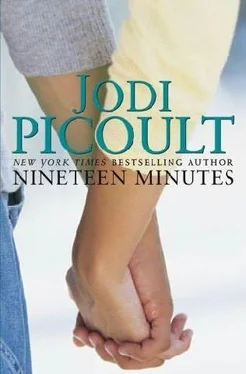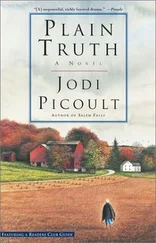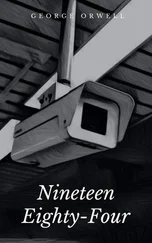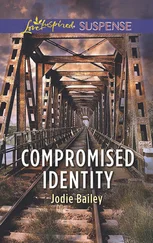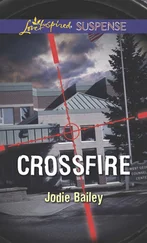She hit a browser button by mistake and got a home page for The Boston Globe. Splashed across the screen was election coverage: the race between the incumbent district attorney and his challenger, the dean of students at Harvard Law School, a man named Logan Rourke.
Butterflies rose inside Josie’s chest. There couldn’t be more than one, could there? She squinted, leaning closer to the screen, but the photograph was grainy and there was a sunlight glare. “What’s wrong with you?” Courtney whispered.
Josie shook her head and closed the cover of her laptop, as if it, too, could hold fast to this secret.
He never used a urinal. Even if Peter just had to pee, he didn’t want to do it standing next to some gargantuan twelfth grader who might make a comment about, well, the fact that he was a puny ninth grader, particularly in his nether regions. Instead, he’d go into a stall and close the door for privacy.
He liked to read the bathroom walls. One of the stalls had a running series of knock-knock jokes. Others blurted the names of girls who gave blow jobs. There was one scribble that Peter found his eye veering toward repeatedly: TREY WILKINS IS A FAGGOT. He didn’t know Trey Wilkins-didn’t think he was even a student at Sterling High anymore-but Peter wondered if Trey had come into the bathroom and used the stalls to pee, too.
Peter had left English in the middle of a pop quiz on grammar. He truly didn’t think that in the grand scheme of life, it was going to matter whether or not an adjective modified a noun or a verb or just dropped off the face of the earth, which is what he was sincerely hoping would happen before he had to go back to class. He had already done his business in the bathroom; now he was just wasting time. If he failed this quiz, it would be the second in a row. It wasn’t even his parents’ anger that Peter was worried about. It was the way they’d look at him, disappointed that he hadn’t turned out more like Joey.
He heard the door of the bathroom open, and the busy slice of hallway noise that trailed on the heels of the two kids who entered. Peter ducked down, scanning beneath the stall door. Nikes. “I’m sweating like a pig,” said one voice.
The second kid laughed. “That’s because you’re a lard-ass.”
“Yeah, right. I could beat you on a basketball court with one hand tied behind my back.”
Peter could hear a faucet running, water splashing.
“Hey, you’re getting me soaked!”
“Aaaah, much better,” the first voice said. “At least now I’m not sweating. Hey, check out my hair. I look like Alfalfa.”
“Who?”
“What are you, retarded? The kid from the Little Rascals with the cowlick thing on the back of his head.”
“Actually, you look like a total fag…”
“You know…” More laughter. “I do sort of look like Peter.”
As soon as Peter heard his name, his heart thumped hard. He slid open the bolt in the stall door and stepped outside. Standing in front of the bank of sinks was a football player he knew only by sight, and his own brother. Joey’s hair was dripping wet, standing up on the back of his head the way Peter’s sometimes did, even when he tried to slick it down with his mother’s hair gel.
Joey flicked a glance his way. “Get lost, freak,” he ordered, and Peter hurried out of the bathroom, wondering if that was even possible when you’d been missing most of your life.
The two men standing in front of Alex’s bench shared a duplex, but hated each other. Arliss Undergroot was a Sheetrock installer with tattoos up and down both arms, a shaved head, and enough piercings in his head to have set off the metal detectors at the courthouse. Rodney Eakes was a vegan bank teller with a prized record collection of original cast recordings from Broadway shows. Arliss lived downstairs, Rodney lived upstairs. A few months back, Rodney had brought home a bale of hay, planning to use it for mulching his organic garden, but he never got around to it and the hay bale remained on Arliss’s porch. Arliss asked Rodney to get rid of the hay, but Rodney hadn’t moved fast enough. So one night, Arliss and his girlfriend cut the twine and spread the hay out over the front lawn.
Rodney called the police, and they had actually arrested Arliss on the grounds of criminal mischief: legalspeak for destroying a bale of hay.
“Why are the taxpayers of New Hampshire shelling out money for a case like this to be tried in court?” Alex asked.
The police prosecutor shrugged. “The Chief asked me to pursue it,” he said, but then he rolled his eyes.
He had already proven that Arliss had taken the bale of hay and spread it over the lawn-the burden of proof fulfilled. But a conviction in this case would mean Arliss would have a criminal record for the rest of his life.
He might have been a lousy neighbor, but he didn’t deserve that.
Alex turned to the prosecutor. “How much did the victim pay for that bale of hay?”
“Four dollars, Your Honor.”
Then she faced the defendant. “Do you have four dollars with you today?”
Arliss nodded.
“Good. Your case is filed without a finding conditional upon your paying the victim. Take four dollars out of your wallet and give it to the police officer over there, who will bring it to Mr. Eakes in the back of the courtroom.” She glanced at her clerk. “We’re taking a fifteen-minute recess.”
In chambers, Alex stripped off her robe and grabbed a pack of cigarettes. She took the back stairs to the bottom floor of the building and lit up, inhaling deeply. There were days when she was proud of her job, and then there were others, like today, when she wondered why she even bothered.
She found Liz, the groundskeeper, raking the lawn in front of the courthouse. “I brought you a cigarette,” Alex said.
“What’s wrong?”
“How did you know something was wrong?”
“Because you’ve been working here for how many years, and you’ve never brought me a cigarette.”
Alex leaned against the tree, watching leaves as bright as jewels catch in the tines of Liz’s rake. “I just wasted three hours on a case that never should have made it to a courthouse. I have a splitting headache. And I ran out of toilet paper in the bathroom in chambers and had to call the clerk in to get me a roll from maintenance.”
Liz glanced up at the tree as a gust of wind sent a new score of leaves onto the raked grass. “Alex,” she said. “Can I ask you a question?”
“Sure.”
“When was the last time you got laid?”
Alex turned, her mouth dropping open. “What does that have to-”
“Most people who go to work spend their time wondering how long till they get back home to do whatever it is they really want to do. For you, it’s the other way around.”
“That’s not true. Josie and I-”
“What did you two do for fun this weekend?”
Alex plucked a leaf and shredded it. In the past three years, Josie’s social calendar had become crammed with phone calls and sleepovers and packs of kids going to a movie or hanging out in someone’s basement lair. This weekend, Josie had gone shopping with Haley Weaver, a junior who’d just gotten her driver’s license. Alex had written two decisions and cleaned out the fruit and vegetable drawers in her refrigerator.
“I’m setting you up on a blind date,” Liz said.
There were a number of business establishments in Sterling that hired teenagers for after-school employment. After his first summer at QuikCopy, Peter had deduced that this was because the jobs mostly sucked, and they couldn’t find anyone else to do them.
He was responsible for photocopying most of the course material for Sterling College, which professors brought in. He knew how to shrink a document down to one-thirty-second of its original size, and how to add toner. When customers paid, he liked to guess what size bill they were going to pull out of their wallets just by the way they dressed or wore their hair. College kids always used twenties. Moms with strollers whipped out a credit card. Professors used crumpled singles.
Читать дальше
